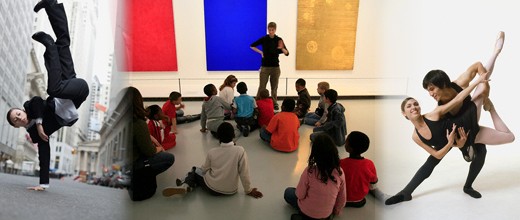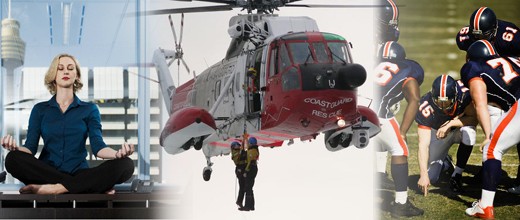Website sections:
Current section's content:
- You Can Manage and Program Creativity
- Creative Abilities and Creative Thinking Skills Management
- Briefly About CreativityModel Method Usage
- CreativityModel Method Usage Opportunities and End-User License Agreement
- Current Version of CreativityModel Method
- CreativityModel Method Abstract
- CreativityModel Method Version Changes
- CreativityModel Method Glossary
- Explanation of the Method's Component Parts and How the Component Parts Interact
- Explanation of How the Method's User Achieves Results
- CreativityModel Method - Generate Dots, Connect the Dots
- CreativityModel Method Usage Areas
- The Artist in You
- Growth of the Artist in You
- The Result Getter in You
- Applying the Result Getter in You
- About Choice Supported Creativity Usage
- The Problematic Side of Business Creativity
- Creativity Management and Business Creativity
- Sales CRM Software Development Example
- Why Does Creativity Management Matter and What Can You Do About This?
- Goal Oriented Creativity Management and CreativityModel Method
- Goal Oriented Creativity Management and Your Personal and Professional Life
- Teenager, Version 1 - Confusion
- Teenager, Version 2 - Career Development and Life Management
- Managers, Version 1 - Zigzagging Business Development
- Managers, Version 2 - Innovation Management and New Product and Service Development
- The President, Version 1 - Some of It Did Happen
- The President, Version 2 - Self-Expression, Conflict Resolution, Creativity and Leadership
- CreativityModel Method Development Background
- Further Development of CreativityModel Method




















Creative Abilities and Creative Thinking Skills Management
Can we learn, train and manage both our creative thinking skills and creative abilities?
A skill is a learned capacity to carry out pre-determined results. An ability is a quality that is required for doing something. Thus, abilities and skills are not the same.
In accordance with the definitions used on this website, creativity is defined here as thinking activities and mental processes that are needed for generating qualitatively appealing solutions regardless of the activity type. Creativity management is defined as management of creative thinking skills and other mental processes of an individual person or a group of people. When including a definition of management, creativity management is defined as controlling, arranging and directing usage of the creative thinking skills and other mental processes of an individual person or a group of people.
The "other mental processes" in the above creativity management definition refer to creative abilities, as creative thinking abilities and abilities that influence creativity. Examples of abilities that influence creativity are level of alertness and cognitive abilities. In most of these areas we have both skills and abilities to work with.
Skills can be learned and trained. Similarly, it is highly likely that most people who can learn and train other cognitive skills, such as knowing, learning, thinking and judging, can also learn and train creative thinking skills and their management within their individual abilities, expertise and experience.
For example, a person can learn and train usage of different creativity and problem solving techniques, to identify a concept's characteristics and how to use the characteristics in different ways, and how to assemble solutions by using a theme, goals, structure and content components.
By using applicable creativity management methods and creativity techniques, a person can actually manage his or her own creative thinking skills, and in teamwork environment also usage of other people's creative thinking skills.
It is unclear, to which extent creative abilities can be learned, trained and managed.
Growing body of evidence suggests that we can train our brain functions which in turn influence creative abilities. However, research indicates that cognitive training increases the performance of the trained tasks, but transfer of what has been learned to other tasks or domains is relatively rare. This seems to indicate that we can train cognitive skills more than cognitive abilities.
So, at this point in time with certainty I can only emphasize the differences between creative thinking skills and creative abilities, their relevance to creativity management and to this website's content. CreativityModel Method, that is featured here, addresses creative thinking skills usage and management.
Another, equally important question is, can we learn and train creative abilities, so that we produce valid and reliable, and, thus, also measurable results?
In my personal opinion, the latter is especially significant because both the companies and individuals who provide creativity management products and services and the customers would benefit from moving in the direction of providing products and services that generate measurable, valid and reliable results. That would help to provide proof of usefulness and would help to sell the products and services, which in turn would benefit both the industry participants and the consumers.
Similarly, if and when CreativityModel Method based exercises will be developed, generating measurable results will be one of the priorities.
Of course, this does not solve the skills vs. abilities dilemma, and without additional research we don't know how transferable the learned skills or abilities are. Further, information on concepts or theories that each specific exercise is related to and how the relationships were established between an exercise, variables, attributes and concepts or theories involved would also be useful. So, we have room for growth here, but the initial steps and results are promising. After all, a lot can be rendered measurable, especially when learning, training and management of skills is concerned.
The above skills vs. abilities questions pertain to the scope and potentially also to the development directions of creativity management industry. What kinds of results should the consumers expect from creativity management industry product and service providers? Should they expect measurable, valid and reliable results? How important is it for the industry participants to work in this direction?
Of course, creativity management related product and service providers can supply different type of solutions, and we let the consumers to decide what they prefer.
In one way or another, the questions pertaining to both creative thinking skills and creative abilities are both beneficial and fascinating to explore.

